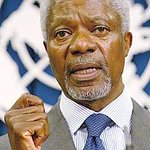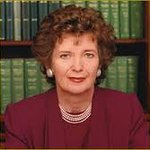The Elders have commended India’s political leaders for progress the country has made in reforming its health system, whilst urging greater action and commitment to reach full Universal Health Coverage (UHC).
Writing to Prime Minister Narendra Modi, Delhi Chief Minister Arvind Kejriwal and Bihar Chief Minister Nitish Kumar, The Elders said that India has made “good progress in improving some health indicators in recent years,” particularly concerning infectious diseases, but that many of its people still lack effective health coverage.
The letter was signed by Kofi Annan, former Secretary General of the United Nations and Chair of The Elders – a group of independent global leaders working together for peace and human rights. The Elders’ Deputy Chair is Dr Gro Harlem Brundtland, former Director General of the World Health Organisation.
The Elders noted that India has the largest population in the world without effective health coverage, with tens of millions of people plunged below the poverty line due to their healthcare expenditures. They also expressed concern that the high incidence of people buying often inappropriate medicines from private drug shops is contributing towards an increase in antimicrobial resistance. This poses a threat to Indian and global health security.
The Elders noted that evidence from other Asian countries shows that India could make more rapid progress towards UHC with a combination of increased political commitment, higher levels of public financing and a series of health systems reforms. Specifically they recommended: increasing public health spending to 2.5% GDP by 2019, focussing additional resources on primary care services and guaranteeing universal access to free essential medicines and diagnostic services.
The Elders commended the recent health reforms undertaken by the State of Delhi, including the “Mohalla” or neighbourhood clinics in poor areas that provide free primary healthcare services. These reforms could prove a good model for UHC in India. They also welcomed the State of Bihar’s initiative to improve the availability of frontline health workers and free essential medicines.
If these and other reforms were replicated on a national basis, this could allow India to reach full population coverage – everyone receiving an essential package of healthcare with financial protection – by 2019.
This would constitute a “bold move to advance UHC [which] could bring tremendous health and economic benefits to the people of India,” The Elders said, noting that currently around one billion Indians are at risk of financial hardship due to healthcare costs.
UHC means that everybody receives the health care they need without suffering financial hardship. It is one of the key targets within the new health Sustainable Development Goal and The Elders believe it is the best way of meeting the overall health Goal and improving the life chances of vulnerable people worldwide.






